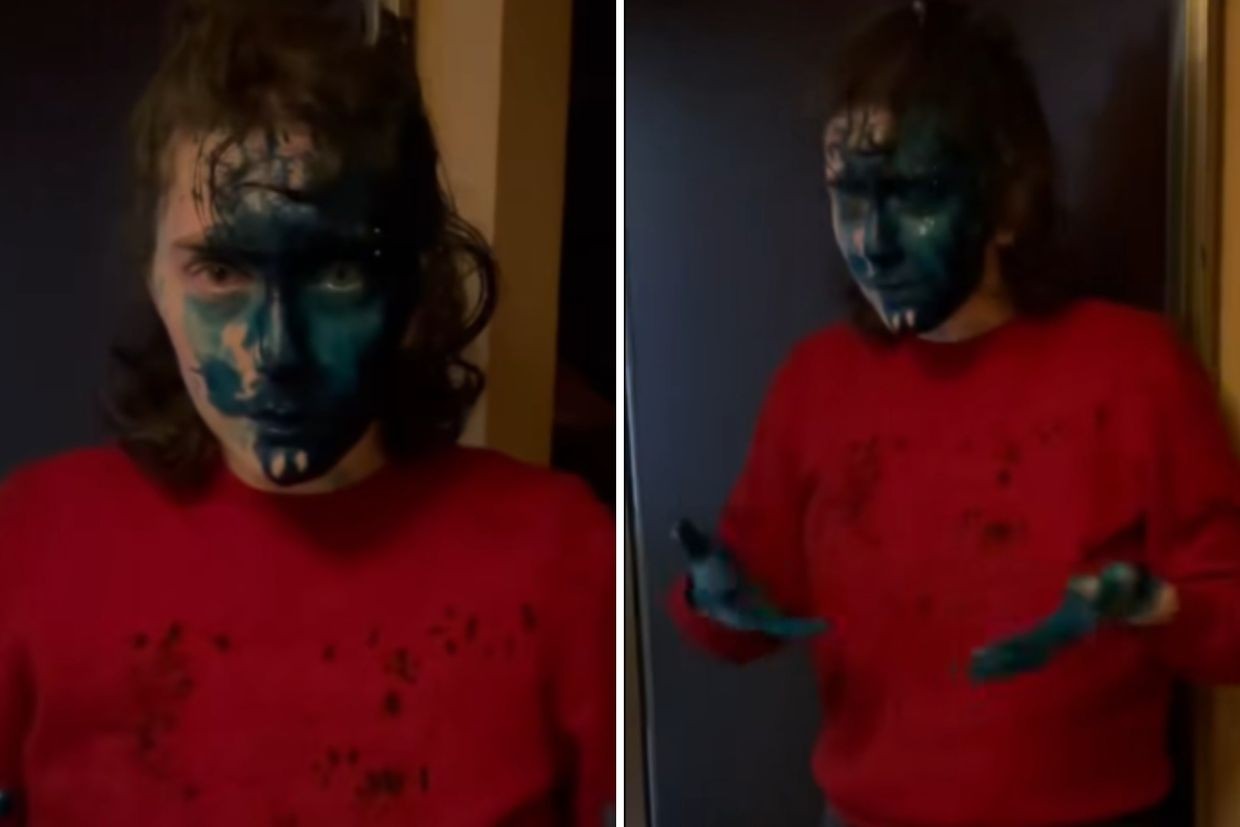
Georgian activist Nutsa Makharadze reported that she, her cousin, and a friend were attacked with pepper spray and coloured dye by an unidentified man inside her residential building. According to Makharadze, the assault followed a month-long stalking in various forms.
In a video Makharadze posted on Monday night, soon after the incident, her cousin, Salome Sarishvili’s face and hands are visibly covered in dye.
‘We came up in the elevator and as we reached our floor, there was someone waiting by the door. It’s an old elevator with a handle and a small uncovered window in the door. The person reached through it with his hand and sprayed pepper spray at us, followed by so-called “brilliant green” dye’, the activist told OC Media.
According to Makharadze, the assailant used a slur, shouting ‘Fuck your Natsi mother’. Natsi is a pejorative term used to describe members or supporters of the formerly ruling United National Movement (UNM) party. However, Georgian Dream and its supporters often use it more broadly to refer to the government critics.
Sarishvili, along with Makharadze’s friend Keti Jananashvili, was hospitalised following the attack. According to Makharadze, both sustained first-degree burns to their eyes, while Sarishvili also suffered damage to her cornea.
‘I felt a burning sensation on my face, but not as bad as Keti and Salome. The spray hit Salome directly, and her entire face was stained’, the activist stated, adding that they could not see the face of the assailant.
Makharadze further told OC Media that about a month before the incident, a car arrived outside Jananashvili’s home with five or six people, slashing the tire of a parked vehicle there. She said a security camera on the house captured the event. The next day, a car of the same make appeared outside her own apartment building.
‘We spoke to the two people in it, and they said they were waiting for someone, but it was definitely the same car’, she added.
According to Makharadze, the last suspicious incident occurred the night before the attack, outside the same building where the Monday assault took place:
‘Around 01:00, the same three of us — me, Keti, and Salome — arrived. There was a young man in a mask and hood — likely the same person [who later attacked us] — and when we took the elevator, he followed us up on foot. It seems he studied what floor the elevator stopped on and which floor I came out on’.
Makharadze believes the attack was linked to their anti-government activism. She noted that both Sarishvili and Jananashvili also participate in the demonstrations:
‘This was an attempt at intimidation. They think they can crush our will like this. It’s ridiculous’.
The nature of the attack has reminded some Georgian social media users of assaults on critics of the Russian government, who were doused with the same brilliant green dye (known as ‘zelyonka’) that, according to Makharadze, was used against her and her companions.
The Ministry of Internal Affairs told OC Media that an investigation has been launched under the criminal code for violence. According to Sarishvili, police remained at her building throughout the night, claiming they were ‘guarding’ the bottle of dye left at the scene as evidence.
In response to a TV Pirveli journalist’s question about why the bottle had not been sealed and collected as evidence and why it remained at the scene of the incident, police officers said that ‘everything will be taken care of’ and that they are ‘looking into the case’.
Amidst anti-government protests in Georgia, reports about physical attacks, threats, and verbal abuse targeting activists, demonstrators and opposition politicians have become increasingly common.
The incidents have occurred both during the protests against the controversial foreign agents law last year and the more recent demonstrations sparked by Georgian Dream’s decision to freeze the country’s EU membership bid.
Government critics have repeatedly linked the attacks to the ruling party, which has not confirmed its involvement.











